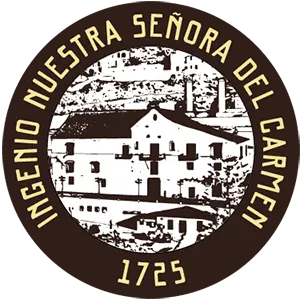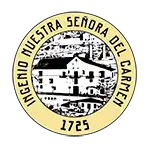
ANDALUSIAN SUGARCANE MOLASSES
FRIGILIANA’S ANDALUSIAN SUGARCANE MOLASSES
Frigiliana’s Andalusian sugarcane molasses is a natural product with a honey like texture and sweet taste, which comes from sugarcane (saccharum officinarum), a plant that comes from Southeast Asia.
It has been grown in Spain since the beginning of the 8th century and today in some regions of Malaga and Granada coastline you can still see sugarcane plantations.
It is named in European legislation as CONCENTRATED SUGARCANE JUICE. It is very versatile in traditional and modern cuisine. Used as a sweetener, ingredient in sauces, salads and as a dressing for fried foods and tempuras. It combines very well with dairy products and acidic fruits and is essential in many typical Andalusian dishes. It is also widely used as a medicinal ingredient.
Lleva fabricándose en Frigiliana desde 1630, y el «INGENIO NUESTRA SEÑORA DEL CARMEN» es la última fábrica tradicional que queda en Europa Continental que sigue fabricando este producto desde 1725 con la misma receta ancestral.
HOW IS IT OBTAINED
Between March and May, the harvest takes place. The canes are cut, bundles or sheaves are made and transported to the factory. Once in the factory the canes go through the mills where their juice (guarapo) is extracted, and the remains of the crushed cane are set aside. Subsequently, it is cooked and filtered to remove any impurities until the desired texture and flavor of our original recipe is achieved.
ORIGIN
Around 324 B.C.
Strabo, in his Geography book quotes a statement made by Nearco, a General of Alexander the Great: "they produce honey, although without bees”.
Around 711-726
Sugarcane was brought by Muslims from Egypt to the Iberian Peninsula for its cultivation. Sugarcane was widely used in the Muslim world because of its purity.
In 1493
Christopher Columbus, on his second trip to America, was given the task of taking sugarcane to the new continent.
Around 1630
The fifth Lord of Frigiliana, Iñigo de Lara, repopulated the town, building new houses, planting cane and establishing a trapiche, a mill that extracts juice from the sugar cane.
PROPERTIES
La «mieldecaña» del INGENIO NUESTRA SEÑORA DEL CARMEN DE 1725, puede considerarse un superalimento, muy completo y natural. Al elaborarse a partir de la planta de la caña de azúcar mantiene muchos principios nutritivos fácilmente asimilables, como la Tianima (B1), Riboflavina (B2), Nicotinamina (B3), el Ácido Pantoténico (B5), Vitamina B6, Biotina (B8), Ácido Fólico (B9), Vitamina B12 y otros importantes minerales como el potasio, el calcio, el magnesio y el hierro. También cabe destacar que nuestra «mieldecaña» no está sulfurada. Todos estos nutrientes aportan a nuestra «mieldecaña» una infinidad de funciones. Ante la duda de qué edulcorante tomar, recomendamos nuestra «mieldecaña» ya que es un producto con un buen equilibrio en calorías y nutrientes que otros edulcorantes no aportan.
– Vitamin B1 or thiamine (0.03 mg / 100g) helps the body's cells to convert carbohydrates into energy. Thiamine also plays a role in muscle contraction and the conduction of nerve signals.
– Vitamin B2 or riboflavin (0.04 mg / 100g) is important for the growth of the body. It helps in the production of red blood cells. It also helps in the release of energy from proteins.
– Vitamin B3 or ricotinamine (2.9mg/100g) is used to treat diabetes and some skin conditions and is being studied for the treatment of some types of cancer. It may increase blood flow to cancer cells and prevent the action of certain enzymes that the cells need, so DNA damage can be repaired.
– Vitamin B5 or pantothenic acid (0.22 mg / 100g) helps convert the food we eat into the energy we need. It is important for many functions in the body, especially the manufacture and breakdown of fats.
– Vitamin B6 helps to produce antibodies, maintain normal neurological function, produce haemoglobin, break down proteins, or maintain blood sugar in normal ranges.
– Vitamin B8 or biotin (0.01 mg / 100g) It is used to relieve muscle pain, eczema, dermatitis, hair loss, brittle nails. It also helps fight depression and drowsiness.
– Vitamin B9 or folic acid (25 mcg / 100g) is very common, and its intake is recommended to pregnant women for the formation of DNA and RNA, which protect and transfer genetic information to cells and allow the regeneration of the tissues. In addition, it contributes to the formation of red blood cells and the production of new proteins.
– Vitamin B12 (2 mcg / 100g) is important for protein metabolism. It helps the formation of red blood cells in the blood and the maintenance of the central nervous system.
– Iron (4.06 mg / 100g) is necessary for the growth and development of the body and helps fight anaemia.
– Potassium (602.10 mg / 100g) helps, among other things, the growth of muscles, the production of proteins, the control of the electrical activity of the heart, the regulation of the level of water in the body and the reduction of negative effects of sodium.
– Magnesium (65.73 mg / 100g) regulates the function of muscles and the nervous system, as well as blood sugar levels and blood pressure. It also helps to combat constipation.
– Calcium (271.80 mg / 100g) helps form and protect bones, as well as prevent osteoporosis.
We make a naturally nutritious product which serves as a sweetener and is widely used as a restorative for athletes or very active people. It is also a versatile ingredient in the kitchen, that can be used in sweet or savoury dishes, to make sauces or can be mixed with cold liquids.



